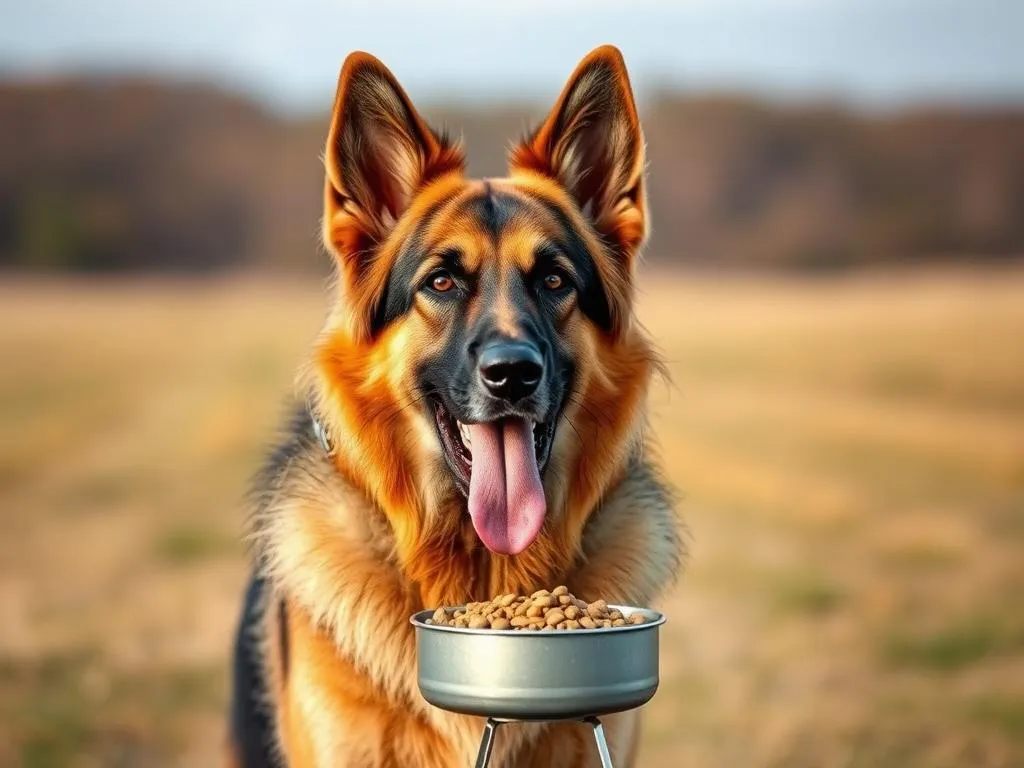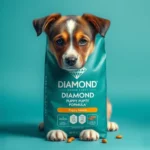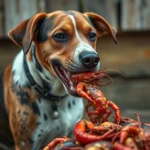
Introduction
Exocrine Pancreatic Insufficiency (EPI) is a condition that affects many German Shepherds, leading to significant difficulties in digesting food. This disorder occurs when the pancreas does not produce enough digestive enzymes, resulting in poor nutrient absorption. As a consequence, EPI dogs may experience weight loss, diarrhea, and other gastrointestinal issues. Proper nutrition becomes crucial in managing these symptoms and ensuring the overall health of your furry friend.
The role of diet in managing EPI symptoms cannot be overstated. The right nutritional plan helps alleviate the discomfort associated with EPI, allowing your German Shepherd to maintain a healthy weight and vibrant energy levels. Understanding how to feed an EPI dog is vital for promoting their well-being and quality of life.
Understanding EPI in German Shepherds
Symptoms of EPI
Recognizing the symptoms of EPI is essential for early intervention. Common signs include:
- Chronic Diarrhea: Frequent loose stools that may have an unpleasant odor.
- Weight Loss: Despite a seemingly normal appetite, dogs with EPI often lose weight rapidly.
- Increased Appetite: Affected dogs may appear hungrier than usual as they try to compensate for nutrient deficiencies.
- Behavioral Changes: Lethargy or changes in behavior due to discomfort can also be observed.
As a responsible pet owner, being vigilant about these symptoms can lead to timely veterinary intervention.
Diagnosis of EPI
Diagnosing EPI in dogs involves a thorough evaluation by a veterinarian. Typically, a specific blood test measuring trypsin-like immunoreactivity (TLI) is administered. This test assesses the levels of digestive enzymes in the bloodstream and helps determine pancreatic health. Consulting with a veterinarian is crucial, as they can provide a proper diagnosis and rule out other potential causes of gastrointestinal distress.
Treatment and Management
Managing EPI often requires a multi-faceted approach. One of the primary treatments is enzyme supplementation, where dogs are given pancreatic enzyme replacements to aid digestion. Additionally, a tailored diet that focuses on easily digestible ingredients is vital for optimizing nutrient absorption and maintaining overall health.
Key Nutritional Needs for EPI German Shepherds
Macronutrients
Proteins
For EPI German Shepherds, high-quality protein is essential. Proteins play a critical role in tissue repair and overall health. Look for dog foods that contain easily digestible protein sources such as chicken, turkey, or fish.
Carbohydrates
Carbohydrates should be low to moderate in fiber content. While fiber is important for digestion, excessive amounts can lead to gastrointestinal discomfort. Opt for digestible carbohydrates like rice or sweet potatoes that provide energy without overwhelming the digestive system.
Fats
Fats are crucial for energy and help with the absorption of fat-soluble vitamins like A, D, E, and K. Healthy fat sources such as fish oil or chicken fat are excellent choices for EPI dogs, as they provide necessary calories while being easier to digest.
Micronutrients
Vitamins and minerals are often overlooked but are vital for EPI dogs. Essential vitamins such as Vitamin B12 and minerals like zinc play a role in metabolic processes and immune function. Consulting with your veterinarian about appropriate supplements can help fill any nutritional gaps.
Hydration
Maintaining proper hydration is critical for all dogs, especially those with EPI. Dehydration can exacerbate symptoms and lead to complications. Always ensure your German Shepherd has access to fresh water, and monitor their intake, especially if they experience diarrhea.
Choosing the Best Dog Foods for EPI German Shepherds
Characteristics of Suitable Dog Food
When selecting the best dog foods for EPI German Shepherds, consider the following characteristics:
- High-Quality Proteins: Look for dog foods that list high-quality protein sources as the first ingredient.
- Low to Moderate Fiber Content: Foods with lower fiber content are generally easier to digest for EPI dogs.
- Easily Digestible Ingredients: Ingredients that are simple and easy to break down will aid in nutrient absorption.
Types of Dog Food
Dry Kibble vs. Wet Food
Both dry kibble and wet food can be suitable for EPI German Shepherds, provided they meet the necessary nutritional criteria. Wet food may be more palatable and easier to digest, while dry kibble can be more economical. Always check for high-quality ingredients regardless of the type.
Raw Diets: Pros and Cons
Some pet owners consider raw diets for their dogs. While raw food can provide natural nutrients, it may pose risks for EPI dogs due to potential bacterial contamination. If considering a raw diet, consult your veterinarian to ensure it meets the specific needs of your German Shepherd.
Prescription Diets: When to Consider Them
In some cases, veterinarians may recommend prescription diets specifically formulated for dogs with EPI. These diets often contain higher protein levels and enhanced digestibility, making them a viable option for managing EPI symptoms.
Top Recommended Dog Foods for EPI German Shepherds
When searching for the best dog foods for EPI German Shepherds, here are a few recommended brands and formulas:
-
Hill’s Prescription Diet Digestive Care: This food is specially formulated for digestive health, with high-quality proteins that are easy to digest. Many veterinarians recommend it for EPI dogs.
-
Royal Canin Gastrointestinal Low Fat: Designed for dogs with gastrointestinal issues, this food features low fat content and highly digestible ingredients, making it suitable for EPI German Shepherds.
-
Purina Pro Plan Veterinary Diets EN Gastroenteric Formula: This formula provides balanced nutrition while being gentle on the digestive system. Its high protein content helps maintain muscle mass.
-
Taste of the Wild High Prairie Canine Recipe: A grain-free option that includes high-quality protein sources and digestible carbohydrates. This food is well-reviewed for its palatability.
Homemade Diet Options
For pet owners interested in preparing homemade meals for their EPI German Shepherds, consider the following key ingredients:
- Lean Protein Sources: Chicken, turkey, and fish are excellent choices.
- Digestible Carbohydrates: Sweet potatoes, rice, and pumpkin can provide energy.
- Healthy Fats: Incorporate fish oil or flaxseed oil for added omega-3 fatty acids.
Sample Recipe:
– Chicken and Sweet Potato Stew: Boil chicken breast and sweet potatoes until cooked. Mix with a bit of low-sodium chicken broth and serve.
Transitioning to homemade diets should be done gradually to avoid gastrointestinal upset. Always consult your veterinarian before making significant dietary changes.
Feeding Guidelines for EPI German Shepherds
Portion Control
Determining the right portion size for your EPI German Shepherd is crucial. Overfeeding can lead to obesity, while underfeeding can result in weight loss and nutrient deficiencies. As a general guideline, consult your veterinarian to establish a feeding plan tailored to your dog’s unique needs.
Monitoring and Adjustments
After feeding, observe your dog’s behavior and stool quality. Any significant changes may indicate the need for dietary adjustments. Keep a close eye on your dog’s weight and overall health, and consult your vet if you notice any concerning symptoms.
Treats and Snacks
When offering treats to EPI dogs, choose safe options that won’t disrupt their digestive system. Here are a few recommendations:
- Carrots: Low in calories and high in fiber.
- Apple Slices: A healthy snack, just be sure to remove the seeds.
- Peanut Butter: A favorite for many dogs, but ensure it contains no xylitol, which is toxic to dogs.
Incorporating treats into your dog’s diet should be done thoughtfully, ensuring they do not compromise overall nutrition.
Common Mistakes to Avoid
Misunderstanding EPI Needs
One of the most common misconceptions about EPI diets is that any high-protein food will suffice. EPI dogs require specific formulations that emphasize digestibility, quality ingredients, and lower fiber content.
Ignoring Ingredient Labels
It’s vital to read ingredient labels carefully. Many dog foods contain fillers, allergens, or low-quality ingredients that can exacerbate EPI symptoms. Always opt for foods with clear, high-quality ingredients.
Overfeeding or Underfeeding
Finding the right balance in portion sizes can be tricky. Overfeeding can lead to obesity and associated health issues, while underfeeding can result in nutrient deficiencies. Regular consultations with your veterinarian can help ensure you’re on the right track.
Conclusion
Specialized nutrition is essential for EPI German Shepherds to thrive. By understanding the unique dietary needs of these dogs and choosing the right foods, you can effectively manage EPI symptoms and enhance your dog’s quality of life. Remember to monitor your dog’s health closely and adapt their diet as needed.
For pet owners, being proactive and well-informed about your German Shepherd’s dietary requirements can make a significant difference in their overall well-being. Regular veterinary consultations will ensure that you stay aligned with the best practices for managing EPI effectively.









